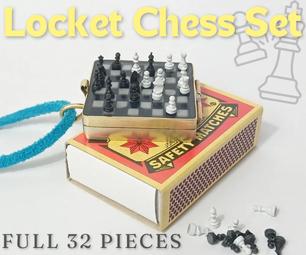Introduction: Stuffed Pumpkin
This is a small, easy project if you like to sew. Here I am using orange polar fleece, though this pattern will likely work with thinner fabrics, you just might need to use more stuffing to make it hold its shape. Should only take around an hour depending on how fast you sew.
Supplies
Materials: paper (to make pattern) pencil, pen, scissors, fabric (for pumpkin and stem), thread, needle, stuffing or fabric scraps.
If you are using thicker fabric, like the polar fleece I am using here, a smaller needle will be a lot easier to sew with than a bigger one.
Step 1: Make Pattern
With the paper and pencil, sketch out a shape that looks like a six-petaled flower. Try to make the petals as even as you can with the width and height, but this project is relatively forgiving. Once you are happy with your shape, cut it out with some scissors. Mine is about 7-71/2 ish inches from tip to tip, and the circle in the middle is about 2 inches in diameter. You can make your pattern as big or as small as you like, though smaller ones might be a bit harder to make.
Step 2: Trace Pattern
Once you have your pattern cut out, trace it onto your fabric with the wrong side facing up so the marker/pen is on the wrong side. You do not need to worry about seam allowance because the stitch used is a whip stitch.
Step 3: Start Sewing
To start sewing, line up the edges of two petals with the right sides facing each other. Make sure to line up the curves of the petals as well. Then, whip stitch* around that edge from base to tip, but do not go the entire length. Leave about a quarter inch of the tip of the petal as is. If you have enough thread, go back down along the edge to the base as far as you can and secure the thread with a knot or two. Sew all the edges together so it looks a bit like a flower bud or a tulip.
*A whip stitch is where the thread only goes in one side and out the other around the edge like a spiral notebook. To tie a knot, pull the thread through a previous stitch almost all the way and then pull the needle through that loop.
Step 4: Turn Inside Out
Once all the edges are securely sewn together, carefully turn the whole thing inside out. I found the easiest way to do that was by scrunching up the bottom and tugging it little by little through the hole. Be aware that the stitches may stretch a bit during this step, but that is fine as long as they aren't too obvious when the pumpkin is right side out.
Step 5: Stuff
The next step is to stuff the pumpkin. Here I used polyester fiberfill. Take small pinches and stick them inside the pumpkin. Add as much stuffing as you want, being careful not to add to much. Stuff it to the line of the little triangles at the top.
Step 6: Trim Edges
Once the pumpkin is properly stuffed with the right amount of squish, carefully cut off the triangles surrounding the edge at the top. Do not cut them off so low you cut into the stitching.
Step 7: Close Pumpkin
Thread your needle once more and begin to close the top. Make a basic running(up and down) stitch along the edge. Once you have gone all the way around, carefully pull at the string to close it. Add a few more stitches to secure the close, but do not cut the thread.
Step 8: Add Stem
Setting the pumpkin aside for a moment, start on the stem. With your stem fabric, cut out a small rectangle the size you want your stem to be. Take your needle (still attached to pumpkin) and put it through the middle of your fabric on one side. Be careful for to go on to the outside of the fabric of you do not want the thread visible. Put it along the other side, making the thread a loop. Pull the thread taut and slide the stem down to the body of the pumpkin. Sew the stem in place, trying to keep the thread hidden. When it is properly affixed, tie a know and trim of the excess thread.
Step 9: All Done!
After the stem is in place, the pumpkin is done! They can be used as a fall decoration. I would like to thank you if you followed along or were at least intrigued by this little project, and I encourage you to try it out for yourself. You can make your pumpkin any color you want and use whatever materials you have on hand.

Participated in the
Pumpkin Challenge







